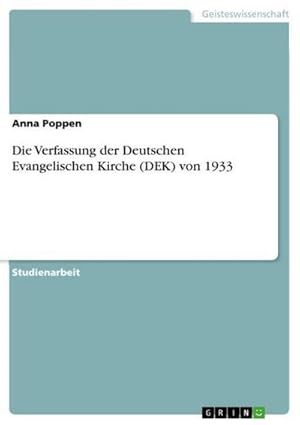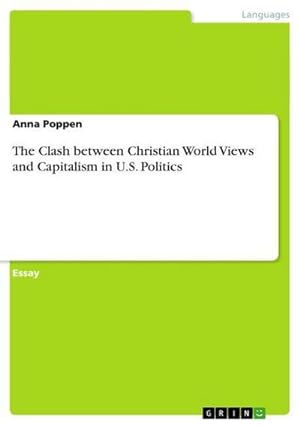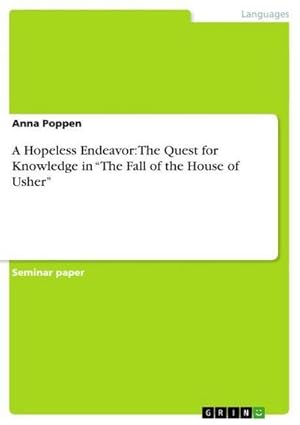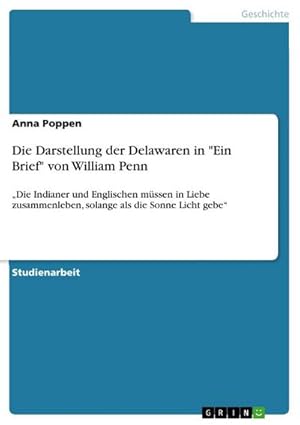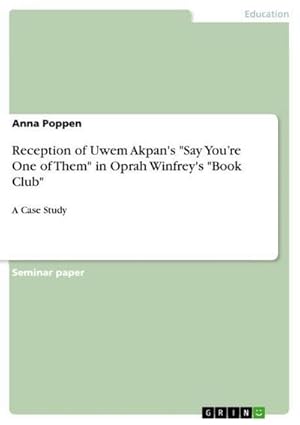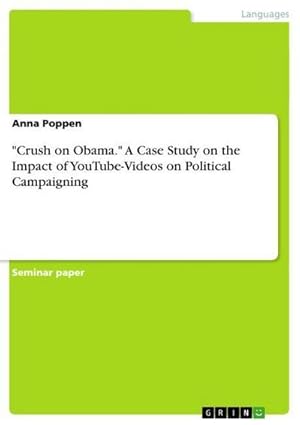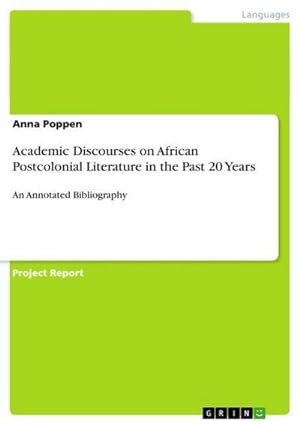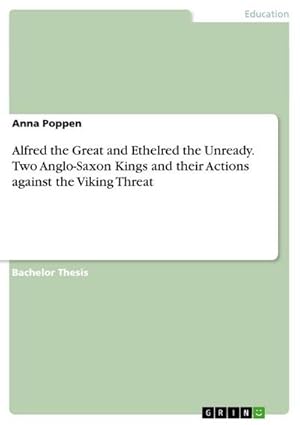poppen anna (16 Ergebnisse)
Produktart
- Alle Produktarten
- Bücher (16)
- Magazine & Zeitschriften
- Comics
- Noten
- Kunst, Grafik & Poster
- Fotografien
- Karten
-
Manuskripte &
Papierantiquitäten
Zustand
- Alle
- Neu
- Antiquarisch/Gebraucht
Einband
- alle Einbände
- Hardcover
- Softcover
Weitere Eigenschaften
- Erstausgabe
- Signiert
- Schutzumschlag
- Angebotsfoto
Land des Verkäufers
Verkäuferbewertung
-
The Alfredian Educational Reform and Translation Program
Verlag: GRIN Verlag, 2013
ISBN 10: 3656468478ISBN 13: 9783656468479
Anbieter: AHA-BUCH GmbH, Einbeck, Deutschland
Buch
Taschenbuch. Zustand: Neu. Druck auf Anfrage Neuware - Printed after ordering - Seminar paper from the year 2008 in the subject Didactics for the subject English - Pedagogy, Literature Studies, grade: 1,0, University of Göttingen, language: English, abstract: King Alfred, who ruled the kingdom of Wessex from 871 to 899, is the only English King, who came to be known as the Great. Today he is remembered and glorified as a great Christian king, who defeated the Vikings, who kept invading and plundering England in the second half of the 9th century. But apart from great military and political achievements, Alfred also stands for educational reform and he is credited for having encouraged the advancement of the Old English language in what was to become the Anglo-Saxon kingdom.What scholars know about Alfred and his actions today is mostly derived from four different sources. Most important is a biography of King Alfred called The Life of King Alfred. This text was written in 893 by Asser, a contemporary of the king. In this biography Asser states that he used to be a monk at St David's, a monastery in Dyfed in Wales, until King Alfred asked him to serve as one of his scholars and advisors. The biography deals with King Alfred's life starting with his birth, but ending abruptly, leaving out the king's actions in the 890s and his death. When dealing with Asser's biography of King Alfred, it is important to keep in mind that the text is not an objective and accurate work, but rather a 'celebration of Alfred's greatness for the edification of multiple audiences' .The second source is the Anglo-Saxon Chronicle, which was written by one or more anonymous authors. This text deals with the political and military developments during Alfred's reign and it contains some information about the king himself. The origin of the Anglo-Saxon Chronicle and its role within the Alfredian translation program will be dealt with later in this work.The third source is the texts from King Alfred's translation program, which were a very important part of his educational reforms. The translation program is a topic that has caused many debates among scholars as will be seen in the course of this work. However, the different writings of King Alfred and the scholars at his court provide a lot of useful information on the king's thoughts and plans.Lastly, coins and archaeology provide important information about King Alfred the Great and his times as well. Since there are quite a lot of contradictory sources providing information on the life of King Alfred the Great, scholars have created quite different and controversial pictures of one and the same historical figure.
-
Die Verfassung der Deutschen Evangelischen Kirche (DEK) von 1933
Verlag: GRIN Verlag, 2014
ISBN 10: 3656714983ISBN 13: 9783656714989
Anbieter: AHA-BUCH GmbH, Einbeck, Deutschland
Buch
Taschenbuch. Zustand: Neu. Druck auf Anfrage Neuware - Printed after ordering - Studienarbeit aus dem Jahr 2012 im Fachbereich Theologie - Historische Theologie, Kirchengeschichte, Note: 1,3, Carl von Ossietzky Universität Oldenburg, Sprache: Deutsch, Abstract: Der 11.07.1933 ist die Geburtsstunde der Deutschen Evangelischen Kirche (DEK), eines Zusammenschlusses der 28 deutschen protestantischen Landeskirchen. An diesem Tag wurde mittels einer gemeinsamen Verfassung die Gründung einer vereinigten Reichskirche beschlossen und das Amt eines Reichsbischofs geschaffen. Die Verfassung der DEK von 1933 hatte somit unmittelbare Auswirkungen auf das Fortbestehen der protestantischen Kirche im nationalsozialistischen Deutschland. Aus heutiger Sicht ist es von besonderem Interesse, inwieweit die Verabschiedung der Verfassung den weiteren Verlauf des sogenannten Kirchenkampfes und somit die Beziehung zwischen evangelischer Kirche und Deutschem Reich beeinflusst hat. Hierbei stellt sich die Frage, ob die Verfassung als Widerspruch der protestantischen Kirche gegen das Eingreifen des Staates oder als Durchsetzung von Hitlers Interessen im Zuge der Gleichschaltungspolitik zu verstehen ist. Im Folgenden soll ergründet werden, inwiefern die Verfassung der DEK das NS-Regime stärkte und wie der Verfassungstext von den regimetreuen Deutschen Christen einerseits und den kirchlichen Oppositionsgruppen andererseits ausgelegt wurde. Aufgrund des begrenzten Rahmens dieser Arbeit soll es dabei jedoch nur um den Zeitraum von Januar 1933 bis Mai 1934 und eine vereinfachende Darstellung der kirchlichen Gruppierungen gehen. Zunächst werden die wichtigsten Inhalte der Verfassung vorgestellt, um den Text dann in den historischen Kontext einordnen zu können. Daraufhin sollen die Folgen der neuen Verfassung aus unterschiedlichen Perspektiven beleuchtet werden. Hierbei wird es jeweils um die Verfassung als Instrument der NS-Regierung, der Deutschen Christen und der evangelischen Oppositionsbewegungen gehen. In einem abschließenden Fazit sollen die Auswirkungen der Verfassung der DEK zusammengefasst werden.
-
Vom Suchbüro zum Großarchiv: Die Geschichte des ITS
Verlag: GRIN Verlag, 2013
ISBN 10: 3656468451ISBN 13: 9783656468455
Anbieter: AHA-BUCH GmbH, Einbeck, Deutschland
Buch
Taschenbuch. Zustand: Neu. Druck auf Anfrage Neuware - Printed after ordering - Essay aus dem Jahr 2008 im Fachbereich Geschichte Europa - Deutschland - Nachkriegszeit, Kalter Krieg, Note: 1,3, Georg-August-Universität Göttingen, Sprache: Deutsch, Abstract: Nach dem Auslaufen des Besatzungsstatuts Deutschlands, wurden am 6. Juni 1955 die 'Bonner Verträge' geschlossen, um eine Grundlage für das weitere Fortbestehen und eine veränderte Organisationsstruktur des International Tracing Services zu schaffen. Es wurde die Einrichtung eines Internationalen Ausschusses beschlossen. Dieser sollte die weiteren Tätigkeiten des ITS überwachen [.].
-
The Clash between Christian World Views and Capitalism in U.S. Politics
Verlag: GRIN Verlag, 2014
ISBN 10: 3656715025ISBN 13: 9783656715023
Anbieter: AHA-BUCH GmbH, Einbeck, Deutschland
Buch
Taschenbuch. Zustand: Neu. Druck auf Anfrage Neuware - Printed after ordering - Essay from the year 2012 in the subject Didactics - English - Applied Geography, grade: 1,0, Carl von Ossietzky University of Oldenburg, language: English, abstract: In recent years, especially after the start of the financial crisis, people all over the world have become more and more worried about the enormous influence of economic factors on their lives. On the level of politics, capitalistic interests seem to get out of control. In the ongoing presidential election campaign in the U.S., economic issues play a major role in the candidates' canvassing. At the same time, religious beliefs and conflicts seem to become more important in political debates. Political leaders use expressions of their faith to gain votes from certain sections of the population. A March 2012 study by the Pew Research Center found that in the U.S. '[a] plurality of the public (38%) says that there has been too much expression of religious faith and prayer from political leaders.' In general, the influence of economic as well as religious issues seems to have gained influence, especially in U.S. politics. Thus, the question arises in how far politics, capitalism and religion are interrelated.In his essay 'The Market as God,' Harvey Cox (1999) establishes a connection between these aspects by comparing capitalism to a religion. He argues that the principles of the free market are similar to certain religious concepts. Cox claims that the so called Market God has three typical divine attributes: omnipotence, omniscience, and omnipresence. Arlie Russell Hochschild takes up this idea and contends that there is a 'sense of the sacred' (2003: 147) in what she calls the religion of capitalism (146). Both Cox (1999) and Hochschild (2003: 148) agree that capitalism functions as a rival religion against the traditional religions like Christianity and Judaism. As mentioned above, in the course of the ongoing global financial crisis, it has become clear that politicians in nearly all governments are deeply involved in economic affairs and processes. The New York Times article 'Protestors Against Wall Street' (2011) refers to the 'elected officials' hunger for campaign cash from Wall Street.' At the same time, a large number of U.S. politicians are outspoken and convinced Christians and even bring their religious points of view into political debates. If the so called Market God and Christianity are regarded as rival religions, this intermingling of economic and religious interests in politics seems highly illogical.
-
Zur Aktualität des Buches Josua
Verlag: GRIN Verlag, 2014
ISBN 10: 365672279XISBN 13: 9783656722793
Anbieter: AHA-BUCH GmbH, Einbeck, Deutschland
Buch
Taschenbuch. Zustand: Neu. Druck auf Anfrage Neuware - Printed after ordering - Essay aus dem Jahr 2012 im Fachbereich Theologie - Biblische Theologie, Note: 1,7, Carl von Ossietzky Universität Oldenburg, Sprache: Deutsch, Abstract: Das Buch Josua steht im Alten Testament am Anfang des sogenannten deuteronomistischen Geschichtswerks (DtrG), das direkt auf den Pentateuch folgt. Unter Berufung auf die Thesen Martin Noths von 1943 sind einige Theologen der Meinung, es gebe einen Zusammenhang zwischen dem Buch Josua und dem Buch Richter sowie den Büchern Samuel und Könige. Alle diese biblischen Bücher seien von Geschichtsschreibern so bearbeitet und zusammengefügt worden, dass sie ein großes Geschichtswerk bilden, das sich mit der Entstehung und Entwicklung Israels beschäftigt. Die Geschichte Israels werde in diesen Texten theologisch gedeutet. Diese Deutungen beziehen sich auf die drei aus dem Deuteronomium entnommenen Aspekte der Monolatrie, der Kultzentralisation und der ethnischen Integrität.
-
Two provocative images. "The Spear" and ¿Global Players¿
Verlag: GRIN Verlag, 2014
ISBN 10: 3656722803ISBN 13: 9783656722809
Anbieter: AHA-BUCH GmbH, Einbeck, Deutschland
Buch
Taschenbuch. Zustand: Neu. Druck auf Anfrage Neuware - Printed after ordering - Seminar paper from the year 2012 in the subject Sociology - Media, Art, Music, grade: 1,7, Carl von Ossietzky University of Oldenburg, language: English, abstract: The international and interdisciplinary summer course 'Transcultural Spaces / Hybrid Selves' at the University of Oldenburg from 3rd until 6th July 2012 dealt, among other things, with questions of race and diversity in South Africa. The picture The Spear by Brett Murray, which caused a scandal in South Africa in May 2012, was discussed in detail. In the course of the discussion among the course participants the question arose whether a similar scandal would be possible in Germany. To be more precise, the students and the lecturers wondered what would happen if German politicians were portrayed with their genitals exposed as is the case with Murray's painting of South African president Jacob Zuma. This seemingly simple question leads to some more in-depth issues of race and gender. As the scandal created by The Spear involved aspects of racial and gender-related discrimination, it would be interesting to find out whether similar debates would erupt in Germany in relation to a provocative portrayal of politicians.In fact, several portrayals of naked German politicians have been published in recent years. One of them is Peter Lenk's relief 'Global Players,' which is on display in Bodman-Ludwigshafen. This image shows five high-profile German politicians completely naked and touching each others' genitals. In order to find out whether this piece of art has created a scandal similar to the one caused by The Spear in South Africa, the public discourse on these controversial pieces of art will be compared. In the following, I will analyze opinions and arguments which appear in online blogs and magazines. By making out the main points of criticism regarding The Spear and 'Global Players,' I will try to come to conclusions concerning underlying social problems in South Africa and Germany. This means that I will try to find out why these pieces of art cause debates or even outrage in certain groups of society and if these bones of contention are the same in South Africa and Germany. I will pursue a case study approach using the method of blog and online article analysis as this procedure is suitable to identify the main lines of arguments in public discourse.
-
A Hopeless Endeavor. The Quest for Knowledge in Wieland : Or The Transformation and in ¿The Fall of the House of Usher¿
Verlag: GRIN Verlag, 2013
ISBN 10: 3656464952ISBN 13: 9783656464952
Anbieter: AHA-BUCH GmbH, Einbeck, Deutschland
Buch
Taschenbuch. Zustand: Neu. Druck auf Anfrage Neuware - Printed after ordering - Seminar paper from the year 2008 in the subject Didactics - English - Literature, Works, grade: 1,0, University of Göttingen, language: English, abstract: Gothic elements, spooky settings and supernatural incidents - these are some things that probably come to people's minds when they think of Charles Brockden Brown and Edgar Allan Poe. These features definitely appear in most of their stories, for example in Brown's novel Wieland; or The Transformation and in Poe's short story 'The Fall of the House of Usher', which will play a major role in this work. When comparing the novel and the short story the reader's attention is attracted by several parallels between the two stories. The most striking common motifs, which have been pointed out and analyzed by many literary critics , are those of incestuous love and inherited madness. Although I won't focus on any of these issues in this work, it is always important to keep these parallels at the back of one's mind.In the following I am primarily going to concentrate on questions of epistemology, which The Stanford Encyclopedia of Philosophy defines as 'the study of knowledge and justified belief' (Stanford Encyclopedia 1). The Encyclopedia states that '[a]s the study of knowledge, epistemology is concerned with the following questions: What are the necessary and sufficient conditions of knowledge What are its sources What is its structure, and what are its limits ' (Stanford Encyclopedia 1) Here I'll mainly be concerned with the sources of knowledge and I will point out how the different characters in Charles Brockden Brown's novel Wieland; or The Transformation and in Edgar Allan Poe's short stories 'The Fall of The House of Usher' and 'The Sphinx' try to make use of these sources.More precisely, I will argue that Charles Brockden Brown and Edgar Allan Poe show the limits of epistemology by creating characters who try to acquire knowledge through different approaches, but fail in the end. Both authors respond to their cultural and historical background and present a rather pessimistic view of the new American nation.In the following I will very briefly describe the historical and cultural background of Brown and Poe's writings and explain to what extent the contents of Wieland, and 'The Fall of the House of Usher' are influenced by and related to this background.
-
A Hopeless Endeavor: The Quest for Knowledge in ¿The Fall of the House of Usher¿
Verlag: GRIN Verlag, 2014
ISBN 10: 3656717753ISBN 13: 9783656717751
Anbieter: AHA-BUCH GmbH, Einbeck, Deutschland
Buch
Taschenbuch. Zustand: Neu. Druck auf Anfrage Neuware - Printed after ordering - Seminar paper from the year 2012 in the subject Didactics - English - Literature, Works, grade: 1,0, Carl von Ossietzky University of Oldenburg, language: English, abstract: The short story 'The Fall of the House of Usher' is one of Edgar Allan Poe's most popular and most interpreted texts. Up to today, literary scholars argue about the proper meaning of the story. The text has been interpreted as a story of the supernatural, a tale of insanity, as a representation of romantic art, as a vampire story or as a text about incestuous love. Most interpretations aim at finding answers to the major questions raised in the short story. Scholars have tried to find reasons for the crash of the mansion, for Roderick's disease, for Madeline's death, for the supernatural vapour around the house, and many other issues that the story leaves open. However, a general answer to all the questions has not yet been found. In the following, I will prove that it is not necessary to find an answer to the inexplicable elements of the text, because they are part of the story's message. The chaotic, nonsatisfying ending of 'The Fall of the House of Usher' is intended, because the story is about the difficulty or even impossibility of explaining the world. That is why Poe's short story 'The Fall of the House of Usher' can be interpreted as part of what Hagenbüchle termed 'the epistemological crisis in nineteenth-century American thought'. Using the example of Charles Brockden Brown's Wieland, Hagenbüchle argues that at the beginning of the 19th century the foundations of human knowledge were questioned and fell apart. This thesis can be applied to other American authors besides Brockden Brown who also challenged established epistemological assumptions. In the following, I will argue that Edgar Allan Poe shows the limits of epistemology by creating characters who try to acquire knowledge through different approaches, but fail in the end. By doing this, he responds to his cultural and historical background and presents a rather pessimistic view of the American nation. In order to place the short story in its cultural context, the following text will first deal with Poe's role in the post-Enlightenment era and the influence of the American context on his writings. In a second step, I will describe the most important characteristics of different theories of epistemology up to the beginning of the 19th century so as to locate Poe within these theories of knowledge. In order to do so, the role of different epistemological approaches in the short story will be examined.
-
Die Darstellung der Delawaren in "Ein Brief" von William Penn : ¿Die Indianer und Englischen müssen in Liebe zusammenleben, solange als die Sonne Licht gebe¿
Verlag: GRIN Verlag, 2013
ISBN 10: 3656465401ISBN 13: 9783656465409
Anbieter: AHA-BUCH GmbH, Einbeck, Deutschland
Buch
Taschenbuch. Zustand: Neu. Druck auf Anfrage Neuware - Printed after ordering - Studienarbeit aus dem Jahr 2009 im Fachbereich Geschichte - Amerika, Note: 1,3, Georg-August-Universität Göttingen, Sprache: Deutsch, Abstract: Am 28. Februar 1681 erhielt der englische Quäker William Penn (1644-1718) eine Charter von König Karl II. von England, die ihn zum Eigentümer eines sehr großen Gebietes auf dem nordamerikanischen Kontinent machte. Dies war der Beginn eines Kolonisations- und Siedlungsprozesses, der eine neue, florierende Kolonie namens Pennsylvania hervorbrachte. William Penn, der Gründer dieser Kolonie, wird heute hauptsächlich mit seiner Zugehörigkeit zu der Gemeinschaft der Quäker in Verbindung gebracht und in diesem Zusammenhang denken viele Menschen sofort an sein 'heiliges Experiment' , das er in Nordamerika verwirklichen wollte. Doch William Penns religiöse Ideale machen nur einen Teil seiner Persönlichkeit aus. Ebenso erwähnenswert ist sein toleranter und respektvoller Umgang mit den Menschen, die bei seiner Ankunft bereits in seiner Provinz lebten: die Delaware - Indianer.Wie William Penn die Ureinwohner der Neuen Welt betrachtete und wie er sich das Zusammenleben mit ihnen vorstellte, hat er vor und während seines ersten Aufenthaltes in Pennsylvania von 1682 bis 1684 in mehreren Schriften dargestellt. Die wohl ausführlichste Beschreibung der Ureinwohner Amerikas enthält Penns Brief an die Society of Free Traders aus dem Jahre 1683. Dieser Brief ist im Original, das heißt in englischer Sprache, im 20. Jahrhundert zum ersten Mal 1937 von Albert Cook Myers herausgegeben worden. Eine Edition der deutschen Übersetzung hat Emil Heuser 1910 auf Grundlage eines im Münchener Geheimen Staatsarchiv befindlichen Manuskripts herausgegeben.Bei William Penns Brief handelt es sich um eine Werbeschrift. Mit dieser Quellenart und ihren Besonderheiten hat sich Heiko Diekmann sehr detailliert auseinander gesetzt. Er hat sich dabei auf deutschsprachige Werbeschriften für Nordamerika im Zeitraum 1680 bis 1760 spezialisiert. Seine Arbeit dient als hilfreiche Grundlage für die Analyse des Penn- Briefes, da er auch speziell die deutsche Version des Dokuments behandelt.Im Folgenden soll es darum gehen, den Entstehungshintergrund und die Besonderheiten der deutschen Version von Penns Brief zu betrachten und festzustellen, wie in diesem Schriftstück die Ureinwohner Nordamerikas dargestellt werden. Um Penns Ausführungen besser einordnen und beurteilen zu können, werden dann die tatsächlichen Verhältnisse im Pennsylvania des 17. Jahrhunderts geschildert, bevor es zu einer abschließenden Einschätzung und Bewertung von Penns Brief kommen wird.
-
Reception of Uwem Akpan's "Say You¿re One of Them" in Oprah Winfrey's "Book Club" : A Case Study
Verlag: GRIN Verlag, 2014
ISBN 10: 365666630XISBN 13: 9783656666301
Anbieter: AHA-BUCH GmbH, Einbeck, Deutschland
Buch
Taschenbuch. Zustand: Neu. Druck auf Anfrage Neuware - Printed after ordering.
-
Der Beitritt Bremens zur Hanse
Verlag: GRIN Verlag, 2013
ISBN 10: 3656459541ISBN 13: 9783656459545
Anbieter: AHA-BUCH GmbH, Einbeck, Deutschland
Buch
Taschenbuch. Zustand: Neu. Druck auf Anfrage Neuware - Printed after ordering - Studienarbeit aus dem Jahr 2008 im Fachbereich Geschichte Europas - Mittelalter, Frühe Neuzeit, Note: 1,0, Georg-August-Universität Göttingen, Sprache: Deutsch, Abstract: Im August des Jahres 2008 feierte die Stadt Bremen ihre 650jährige Mitgliedschaft in der Hanse.Da Bremen also auch heute noch mit der Hanse in Verbindung gebracht wird, erscheint es angebracht, sich ausführlich mit Bremens Aufnahme in die Hanse im Jahre 1358 zu beschäftigen. Vom Beitritt zur Hanse wird in mehreren Chroniken berichtet. In der ältesten deutschen Bremer Chronik, der Rinesberch-Schene-Chronik, ist in den Kapiteln 459 bis 463 die Rede von der Aufnahme in die Hanse und in den Chronica der Stadt Bremen berichtet der Verfasser Johann Renner: do quemen se wedder inn de hense .Auffällig an Renners Formulierung ist das Wort wedder, denn es setzt voraus, dass Bremen vor dem Beitritt im Jahre 1538 schon einmal Mitglied der Hanse war. Auch die Darstellung in der Rinesberch-Schene-Chronik lässt dies vermuten, deshalb haben sich in der Vergangenheit einige Fachmänner mit einer möglichen Verhansung Bremens vor 1358 beschäftigt.Im Folgenden soll es darum gehen, die Rinesberch-Schene-Chronik und Johann Renners Chronica der Stadt Bremen miteinander zu vergleichen und dabei auf Gemeinsamkeiten und Unterschiede einzugehen. Die beiden Quellen sollen zunächst formal und inhaltlich analysiert werden, bevor dann auf Widersprüche und Ungereimtheiten in den Darstellungen eingegangen wird. Da eine eventuelle Verhansung Bremens vor 1358, wie bereits erwähnt, in beiden Werken eine große Rolle spielt, wird hierauf im Detail eingegangen werden. Abschließend soll dann geklärt werden, welche der beiden Chroniken bessere und zuverlässigere Informationen über Bremens Beitritt zur Hanse vor 650 Jahren liefert.
-
Die Darstellung der Göttinger Bürgerversammlung und Bürgerwehr in zwei Berichten über die Revolution von 1848/49
Verlag: GRIN Verlag, 2013
ISBN 10: 3656469296ISBN 13: 9783656469292
Anbieter: AHA-BUCH GmbH, Einbeck, Deutschland
Buch
Taschenbuch. Zustand: Neu. Druck auf Anfrage Neuware - Printed after ordering - Studienarbeit aus dem Jahr 2009 im Fachbereich Geschichte Europa - Deutschland - 1848, Kaiserreich, Imperialismus, Note: 1,7, Georg-August-Universität Göttingen, Sprache: Deutsch, Abstract: Vor ungefähr 160 Jahren fanden in den zu jener Zeit existierenden deutschen Territorien Ereignisse statt, die heute als die Revolution von 1848/49 bekannt sind. Diese Revolution wird häufig als gescheitert betrachtet, da sie keine kurzfristigen Erfolge verzeichnen konnte und sich an den bestehenden Regierungsverhältnissen zunächst kaum etwas änderte. In den Revolutionsjahren 1848 und 1849 entstanden jedoch einige neue Institutionen, in denen deutsche Bürger sich organisierten und die den Verlauf der revolutionären Ereignisse beeinflussten. Anke Bethmann und Gerhard Dongowski haben diese neuen Institutionen speziell für das Königreich Hannover untersucht und Folgendes festgestellt:'Es hat sich bisher gezeigt, dass die Revolution von 1848/49 im Königreich Hannover unterschiedliche Organisationsformen hervorgebracht hat, die nach ihrer Etablierung nicht in einem starren Zustand verharrten; sie waren dynamischer Natur und veränderten sich je nach den Ansprüchen, die im Verlauf der beiden Jahre an sie gestellt wurden.'Im Folgenden soll dargestellt werden, wie sich die erwähnten Organisationsformen speziell in der Universitätsstadt Göttingen entwickelten und welchen Einfluss sie auf die revolutionäre Bewegung von 1848/49 hatten. Dies soll auf der Grundlage von zwei Berichten geschehen, in denen die Mitglieder des Göttinger Vereins für Geschichte Ernst Honig und Wilhelm Eberwien sich rückblickend an die Ereignisse in den Revolutionsjahren erinnern. Bei diesen beiden Berichten handelt es sich um Veröffentlichungen des Vereins für die Geschichte Göttingens aus den Jahren 1893 und 1901. Die Verfasser dieser Berichte gehen besonders detailliert auf die Bedeutung der Bürgerversammlung und der Bürgerwehr ein. Da diese Institutionen als die wichtigsten Errungenschaften der Bürger während der Revolution betrachtet werden können, wird sich diese Arbeit mit der Entwicklung und Bedeutung der Bürgerversammlung und der Bürgerwehr in der Stadt Göttingen beschäftigen.
-
Crush on Obama." A Case Study on the Impact of YouTube-Videos on Political Campaigning
Verlag: GRIN Verlag, 2014
ISBN 10: 3656667136ISBN 13: 9783656667131
Anbieter: AHA-BUCH GmbH, Einbeck, Deutschland
Buch
Taschenbuch. Zustand: Neu. Druck auf Anfrage Neuware - Printed after ordering - Seminar paper from the year 2011 in the subject Didactics - English - Applied Geography, grade: 1,0, Carl von Ossietzky University of Oldenburg, language: English, abstract: The video sharing website YouTube has become a phenomenon that is part of an increasing number of people's lives and also a part of the usual presidential rhetoric. Before the launch of YouTube in 2005, the enormous effects of this online phenomenon on all aspects of society could hardly be foreseen. In 2011, however, it is obvious that YouTube and other online media affect every day life, including political decision making, in many ways. The 2004 US presidential election is often referred to as the first internet election as the candidates (Howard Dean in particular) started to use blogs and websites to raise money and convince voters online (Zielmann, Röttger 2009: 77). By 2008, the internet had become even more diverse and complex and offered a lot of new online functions like social networking sites (Facebook) and video sharing sites (YouTube). These new opportunities were used by most of the candidates in the 2008 presidential election. The later US President Barack Obama as well as his internal opponent Hillary Clinton made use of the internet to spread their political messages and address especially the younger voters. A study that was conducted by the Pew Internet & American Life Project during the 2008 election campaign proved that 40% of all adults accessed information about politics on the internet. It also showed that 'viewers of politically relevant YouTube videos ha[d] become a key part of at least some campaign events' (Rainie, Smith 2008). In 2008, the online world was not new to most people, but it was used as a major propaganda tool by most politicians and their campaign teams for the first time. In the Democratic primary elections several candidates did not announce their candidacy in the traditional press but online. On July 23, 2007, the first ever political debate took place on YouTube.
-
Academic Discourses on African Postcolonial Literature in the Past 20 Years : An Annotated Bibliography
Verlag: GRIN Verlag, 2014
ISBN 10: 3656718741ISBN 13: 9783656718741
Anbieter: AHA-BUCH GmbH, Einbeck, Deutschland
Buch
Taschenbuch. Zustand: Neu. Druck auf Anfrage Neuware - Printed after ordering - Project Report from the year 2012 in the subject Literature - Africa, grade: 1,0, Carl von Ossietzky University of Oldenburg, language: English, abstract: The academic discourse on African postcolonial literature is characterized by a continuous process of debates on a variety of issues, reassessments of theories and redefinitions of terms. The term African postcolonial literature refers to writings produced after the political independence of various African states which were formerly subject to European colonial rule. Most of this literature written by African authors in their home countries or in diaspora deals with issues of colonial experience or decolonization. However, as Graham Huggan points out, the term African literature is a problematic concept, because 'it conveys a fiction of homogeneity' and ignores the cultural variety existing on the African continent.Gikandi explains that the foundations of modern African literature have been laid by the process of colonization, e.g through education in Christian schools which have enabled today's forms of literature. Gikandi emphasizes the irony of this fact: '[W]hile the majority of African writers were the products of colonial institutions, they turned to writing to oppose colonialism.' This leads to various problems when dealing with African writings, especially when applying the viewpoint of postcolonial criticism, which has been trying to theorize African writings since the 1980s. As Huggan points out, postcolonial criticism has been criticized 'as subscribing to the very binaries (e.g. 'Europe and its Others') it seeks to resist.'This paper contains an annotated bibliography which considers various issues regarding African postcolonial literature that have been discussed in the past 20 years. Here, the term African postcolonial literature is understood in a temporal way (referring to the postcolonial era in Africa) and in an academic way (referring to the postcolonial discourse). The articles, collections of essays and monographs listed in the bibliography only provide glimpses at the extensive and elaborate discourses on African postcolonial writings. However, the entries in the bibliography have been categorized in order to cast a light on the main issues and problems discussed in this field. In the following, introductory works and texts dealing with the two main genres of African literature will be presented first. Works referring to postcolonial theory and consequential problems and debates (e.g. on language) take the major part of the bibliography.
-
Die pronatalistische Bevölkerungspolitik des Nicolae Ceausescu im bevölkerungswissenschaftlichen und -politischen Kontext
Verlag: GRIN Verlag, 2014
ISBN 10: 3656675813ISBN 13: 9783656675815
Anbieter: AHA-BUCH GmbH, Einbeck, Deutschland
Buch
Taschenbuch. Zustand: Neu. Druck auf Anfrage Neuware - Printed after ordering - Studienarbeit aus dem Jahr 2011 im Fachbereich Geschichte Deutschlands - Neuere Geschichte, Note: 1,0, Carl von Ossietzky Universität Oldenburg, Sprache: Deutsch, Abstract: Seit dem Zusammenbruch der kommunistischen Staaten Europas im Jahre 1989 besteht ein großes wissenschaftliches Interesse an der Erfassung und Aufarbeitung der diversen Ausformungen und Auswirkungen der kommunistischen Politik. Ein besonderes Augenmerk liegt dabei auf den Folgen des Kommunismus für die jeweilige Bevölkerung, unter anderem im Hinblick auf bevölkerungspolitische Maßnahmen. Die besonders restriktive pronatalistische Bevölkerungspolitik Rumäniens unter Nicolae Ceausescu, der das Land von 1965 bis zu seinem Sturz im Jahre 1989 regierte, ist in diesem Kontext ein besonders aufschlussreiches Beispiel. Die Bevölkerungsthematik ist auch zu Beginn des 21. Jahrhunderts ein sehr aktuelles und viel diskutiertes Problemfeld. Begriffe wie Bevölkerungsexplosion und Überbevölkerung auf der einen und Überalterung und Aussterben von Gesellschaften auf der anderen Seite prägen die politischen und öffentlichen Debatten in vielen Ländern dieser Welt. Vor dem Hintergrund dieser aktuellen Bevölkerungsdiskurse haben sich zahlreiche Forschungszweige mit Ceausescus Familienpolitik und deren Auswirkungen beschäftigt. In den meisten Fällen liegt der Fokus hierbei auf der Bedeutung des Abtreibungsverbotes für die rumänischen Frauen und die so genannten Dekretkinder, die aus Ceausescus pronatalistischer, das heißt die Fortpflanzung befürwortenden, Politik hervorgingen. Die amerikanischen Kulturwissenschaftlerinnen Gail Kligman und Susan Gal befassen sich aus einer eher anthropologischen Perspektive mit den Folgen von Ceausescus Familienpolitik für rumänische Frauen. Sie untersuchen vor allem auch die Langzeitfolgen dieser Politik nach dem Ende der kommunistischen Herrschaft in Rumänien. In ihren Studien ergründen Kligman und Gail, wie Fortpflanzung und Geschlechterrollen durch die Regierung unter Ceausescu politisiert und so zu Gender Politics und Politics of Reproduction wurden. Kligman versucht zudem, aus den Ereignissen in Rumänien Lehren für die heutige Familienpolitik, besonders die Abtreibung betreffend, in den USA zu ziehen. Katherine Verdery beschäftigt sich mit dem Zusammenhang zwischen nationalistischem Denken und der rumänischen Bevölkerungspolitik , während Thomas Keil und Viviana Andreescu die Folgen des Dekrets 770 aus einer demographischen Perspektive betrachten. [.].
-
Alfred the Great and Ethelred the Unready. Two Anglo-Saxon Kings and their Actions against the Viking Threat
Verlag: GRIN Verlag, 2013
ISBN 10: 3656467056ISBN 13: 9783656467052
Anbieter: AHA-BUCH GmbH, Einbeck, Deutschland
Buch
Taschenbuch. Zustand: Neu. Druck auf Anfrage Neuware - Printed after ordering - Bachelor Thesis from the year 2010 in the subject Didactics for the subject English - Pedagogy, Literature Studies, grade: 2,0, University of Göttingen, language: English, abstract: In the long list of English rulers there is only one king who achieved to be honored with the epithet the Great. Alfred the Great is known today as one of the most successful kings of England and has become a national hero. The role of the national failure, however, has been ascribed to King Ethelred II, who is known as Ethelred the Unready. Both kings ruled in Anglo-Saxon times, their reigns are only about one hundred years apart and both had to face the same enemy: the Vikings from Scandinavia. Although it seems as if the two kings ruled under the same prerequisites, their reigns had very different outcomes and they have opposing reputations today. King Alfred, who ruled the kingdom of Wessex from 871 to 899, is today remembered and glorified as a great Christian king, who defeated the Vikings, who continuously invaded and plundered England in the second half of the ninth century. Apart from great military and political achievements, Alfred also stands for educational reform and is credited for having laid the foundations for what was to become the Anglo-Saxon kingdom. King Ethelred ruled this kingdom from 978 to 1016. Today, he is seen as a weak and powerless king, who did not manage to fight off the Vikings who were attacking the Anglo-Saxon kingdom during his reign, especially at the beginning of the eleventh century. He is accused of having lost control over his kingdom and having handed it over to the Vikings without developing a coherent strategy of defense. In order to find out how and why King Alfred and King Ethelred acquired such different reputations and whether they are justified, one has to have a close look at their reigns and especially at the actions they took to keep the Viking invaders from plundering and conquering their kingdom. Despite these problems, which will be a central theme in this work, the following text aims at presenting detailed accounts of King Alfred the Great and King Ethelred the Unready's struggles against the Viking invaders in order to allow for a direct comparison of their actions. Certainly, this work can make no claims of providing a comprehensive and complete picture of the kings' personalities and their reigns. It is rather meant to present an overview, which can be used as a basis for an evaluation and reassessment of Alfred and Ethelred's legacies.



